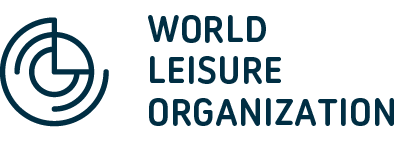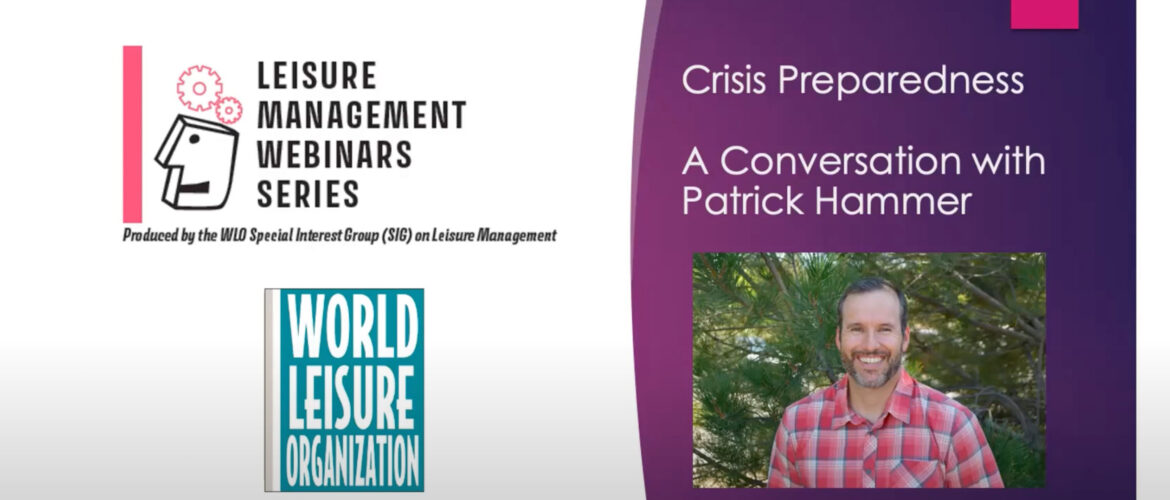By Patrick Hammer, Director of Parks and Recreation Town of Erie, Colorado, United States
Note: This piece follows the webinar on the topic organized by the WLO Special Interest Group (SIG) on Leisure Management, which can be watched here.
Catastrophic weather events, acts of mass violence, health pandemics, cyber-attacks to operating systems or just sudden conditional changes in daily operations can leave recreation and leisure organizations and communities emotionally, physically and financially reeling. Being able to proactively plan for crisis events, including defining roles and responsibilities, is becoming as integral to an organization’s operation as having a strategic business plan.
While the particular circumstances and events that occur in moments of crisis are varied and unpredictable, the steps taken during the response and recovery do not have to be. Being able to breakdown what is likely to be a complex situation, and creating opportunities for incremental decision making sets in motion an understandable path to recovery. A small amount of preplanning can go a long way in providing clarity and direction for staff, and reassurance for community members.
There are generally three phases to navigating a crisis. Within each phase there are four focus areas to be accounted for;
Crisis Phases
- Pre-crisis preparation
- During the crisis
- Post-crisis evaluation and recovery
Focus Areas
- Financial (budget resources, access to reserves)
- Assets and Infrastructure (facilities, parks, playgrounds, trails, lakes)
- Operations (programs, daily services)
- Human Capital (staff, customers, community members)
Identifying beginning and ending points to each phase provides clarity and keeps chaotic situations manageable. Good organizations have a plan for each phase and employees understand their roles from start to finish. For example, a facility maintenance employee may play a significant role in debris removal after a flood, but may not have a role in meeting with the community months later to discuss rebuilding. One role is not more important than the other, they just serve different purposes at different times.
Valuable time and resources are wasted, and public trust is diminished, in times of crisis if leaders do not have a baseline understanding of the organization’s financial resources, assets and infrastructure, core operations and services, and employee resources. The more that is known about the focus areas before a crisis, the easier it becomes to evaluate and make decisions when something unexpected occurs. The byproduct of having a plan in place is the ability to allocate resources quickly and safely where they are needed most.
Applying this phasing framework to crisis management creates a digestible process to monitor, identify impacts, and make informed decision for the things that matter most to an organization. It is also important to create a shared understanding of what constitutes a crisis and who has the authority to put the plan in motion. As an example, a crisis event can be thought of as an event that disrupts normally planned operations for more than 72-hours, and the executive director and emergency personnel will make the determination when to initiate the plan.
Crisis events will always be complex and timelines can last months to years. No plan is perfect, no one solution fits all, but having a plan in place before you need one puts an organization at an advantage.





Leave a Comment